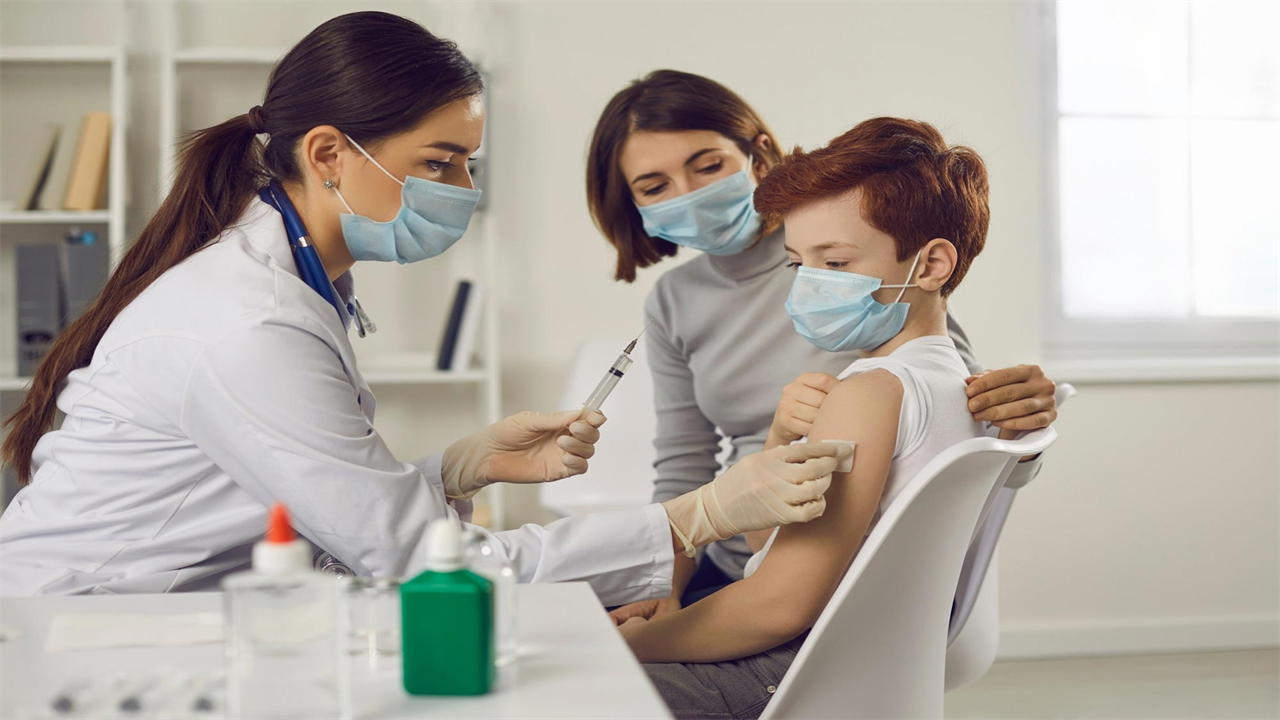What Parents Should Know About the COVID-19 Vaccine and Kids – Timing, Side Effects, and Testing
0 View
Share this Video
- Publish Date:
- 31 October, 2021
- Category:
- Covid
- Video License
- Standard License
- Imported From:
- Youtube
Tags

The COVID-19 vaccine will soon be available for children ages 5 to 11. associate Prof. dr. Allison Bartlett of UChicago Medicine has answers to some of the common questions parents have about what comes next.
University of Chicago Assoc. Prof. dr. Allison Bartlett has tips to help your child prepare for their vaccine.
A U.S. Food and Drug Administration advisory panel has recommended giving the Pfizer-BioNTech COVID-19 vaccine to children ages 5 to 11.
Once a panel from the Centers for Disease Control and Prevention officially gives the green light, doses will be widely available for young children in the Chicago area, including at the University of Chicago Medicine Comer Children’s Hospital.
associate Prof. dr. Allison Bartlett, a pediatrician at UChicago Medicine, answers frequently asked questions and tells you what you need to know about the COVID-19 vaccine for children, including when pharmaceutical manufacturers expect the vaccine to be available for children under age 5, and how to help your child prepare.
Is the number of doses and timing for this vaccine different for this age group than it is for adults?
The number of doses and timing between doses is the same for young children as it is for teens and adults. Like adults, this new group of vaccine-eligible children require two injections, approximately three weeks apart. Children should wait two weeks after their second injection to be considered fully protected.
The main difference is that children ages 5 to 11 get a smaller dose when they get the immunization. Clinical studies showed that giving one-third the adult dose (10 mg for children, compared to 30 mg for those 12 years and older) resulted in the best balance between maximal immune response and minimal side effects.
Are the side effects the same for children?
Yes, the set of side effects is similar to those seen in adults who received the vaccine: injection site pain, fatigue, chills, fever, and headache. Although the side effects are more pronounced after the second dose, they have been shown to last only a day or two.
Can children still get COVID-19 after vaccination?
No vaccine is 100% effective, so children can still get COVID-19 after vaccination. Like vaccinated adults, if children become infected with COVID-19, they are much less likely to become seriously ill. It is important to note that while serious illness in children who contract COVID-19 is rare, more data is needed to determine the longer-term physical, emotional and mental health effects of those infected as children.
Why can’t children under 5 get the COVID-19 vaccine?
Current vaccines are not yet approved for children under the age of 5. Studies are ongoing to test safety and efficacy for children 6 months to 4 years old. Just as it took time for vaccines to be approved for primary school age children, vaccine manufacturers are still conducting clinical trials to determine the optimal dosage for the youngest group of the population. This is important so that scientists can properly weigh the vaccine’s effectiveness and its side effects. Pfizer expects to have results of these studies later this year, with the hope of using this vaccine in the youngest children in early 2022, if not sooner.
What’s different about research methods when testing vaccines for children?
Because children are in different developmental stages during childhood and adolescence, safety and efficacy testing takes into account a number of factors, such as the child’s weight and dose tolerability. Manufacturers need to figure out which dose will provide adequate protection without too many side effects.
Can children also get the flu shot at the same time as the COVID-19 vaccine?
Both children and adults can absolutely get the COVID-19 vaccine at the same time as their annual flu shot. In fact, it’s something I strongly encourage with my patients, friends, and even my own children. The flu vaccine is an important immunization that helps protect us from the seasonal flu and also helps minimize how sick we get when infected.
How can I help my child reduce their anxiety about the COVID-19 vaccine?
The Child Life team at Comer Children’s Hospital has a lot of great experience in helping children prepare for medical treatments, including vaccinations. Here are some of their top tips:
Calmly explain what will happen to your child and why it is important. Planning in advance helps kids prepare mentally and know they won’t be alone. Bring something nice and comforting, such as a tablet or toy that can help distract a child and reduce anxiety. It’s also helpful to let kids pick which item to take with them, as it gives them a sense of freedom of choice. Don’t project your own fears or dismiss their concerns. Children are good at picking up emotions from parents. If parents remain calm, it will also help children to remain calm. Praise children afterwards for the great work.










